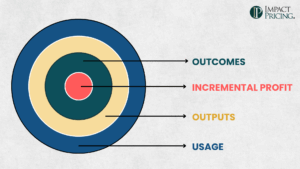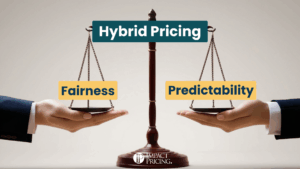You can listen to the full audio version of this blog we call — Blogcast.
When launching a new product, I often hear people say something like, “It’s easier to lower prices than raise them.” They use this to justify releasing the new offer at a high price. Of course, I’m a huge proponent of higher prices, but this frequently used claim is not the reason.
When you raise prices, who knows? Existing customers do, but you don’t have to raise their prices. New customers don’t know what your price was. Imagine your refrigerator just broke, and you need to buy a new one. You go to the appliance store and see one you like for $1195. What was the price a week ago? A month ago? You don’t know. Just like your new buyers have no idea what your older prices were.
The exception to this is very well-known brands and products. For example, when Apple launches a new iPhone, the world knows its pricing. In their case, it may be harder to raise prices. Be honest with yourself. How many people, besides your customers, watch your prices? It’s probably almost zero.
This post does not tell you to launch with a low or a high price. That decision should be made strategically.
- Are you trying to skim or penetrate the market?
- Where do you want to be relative to your competitors?
- Do you have the resources to fulfill a lot of demand?
- Does this help your business in other strategic ways?
- Do you have to maintain a price-based image?
The point is: don’t use a false claim to justify your decision.
Share your comments on the LinkedIn post.
Now, go make an impact!
 Tags: pricing, pricing foundation, pricing strategies, pricing value
Tags: pricing, pricing foundation, pricing strategies, pricing value













